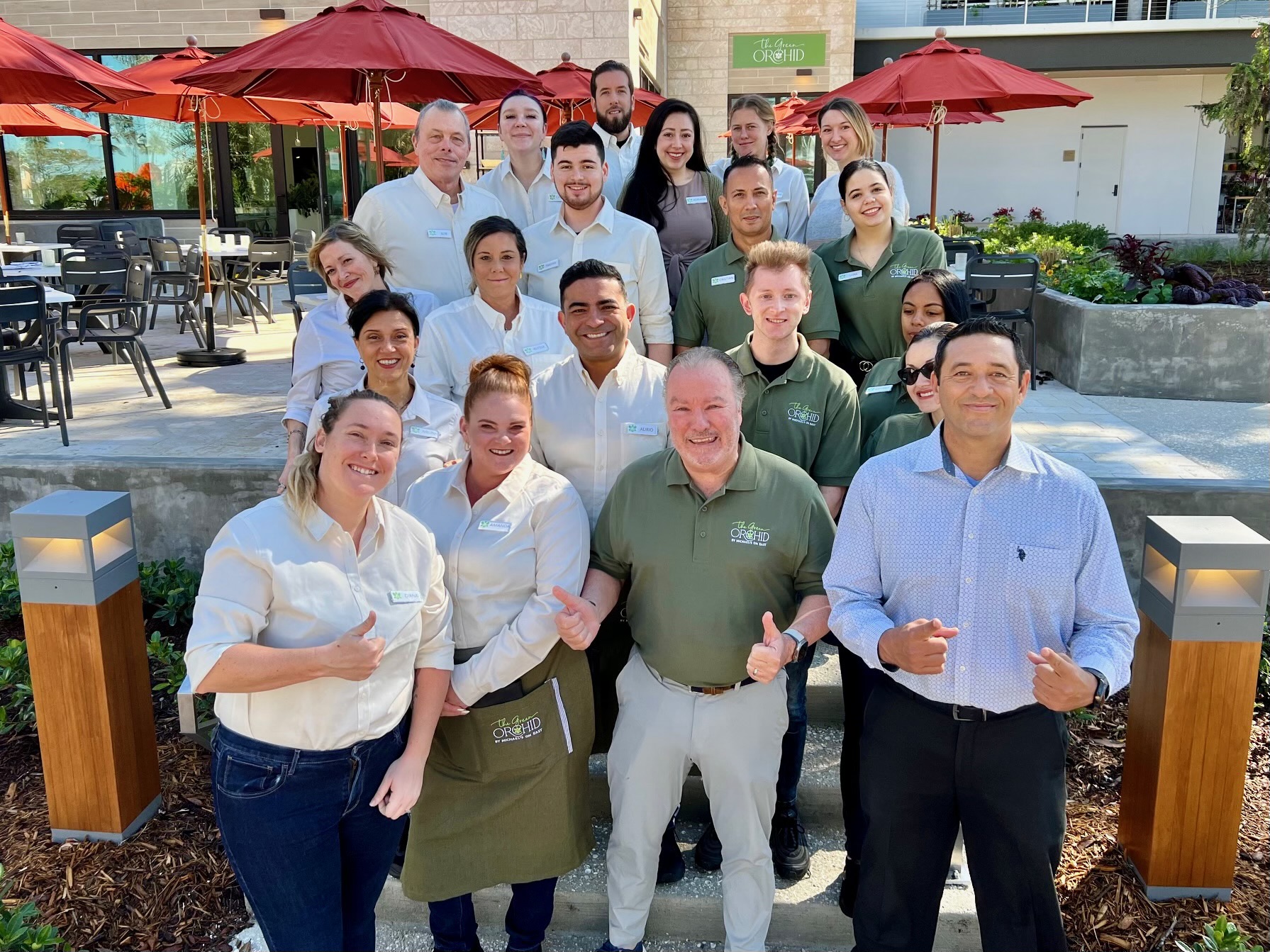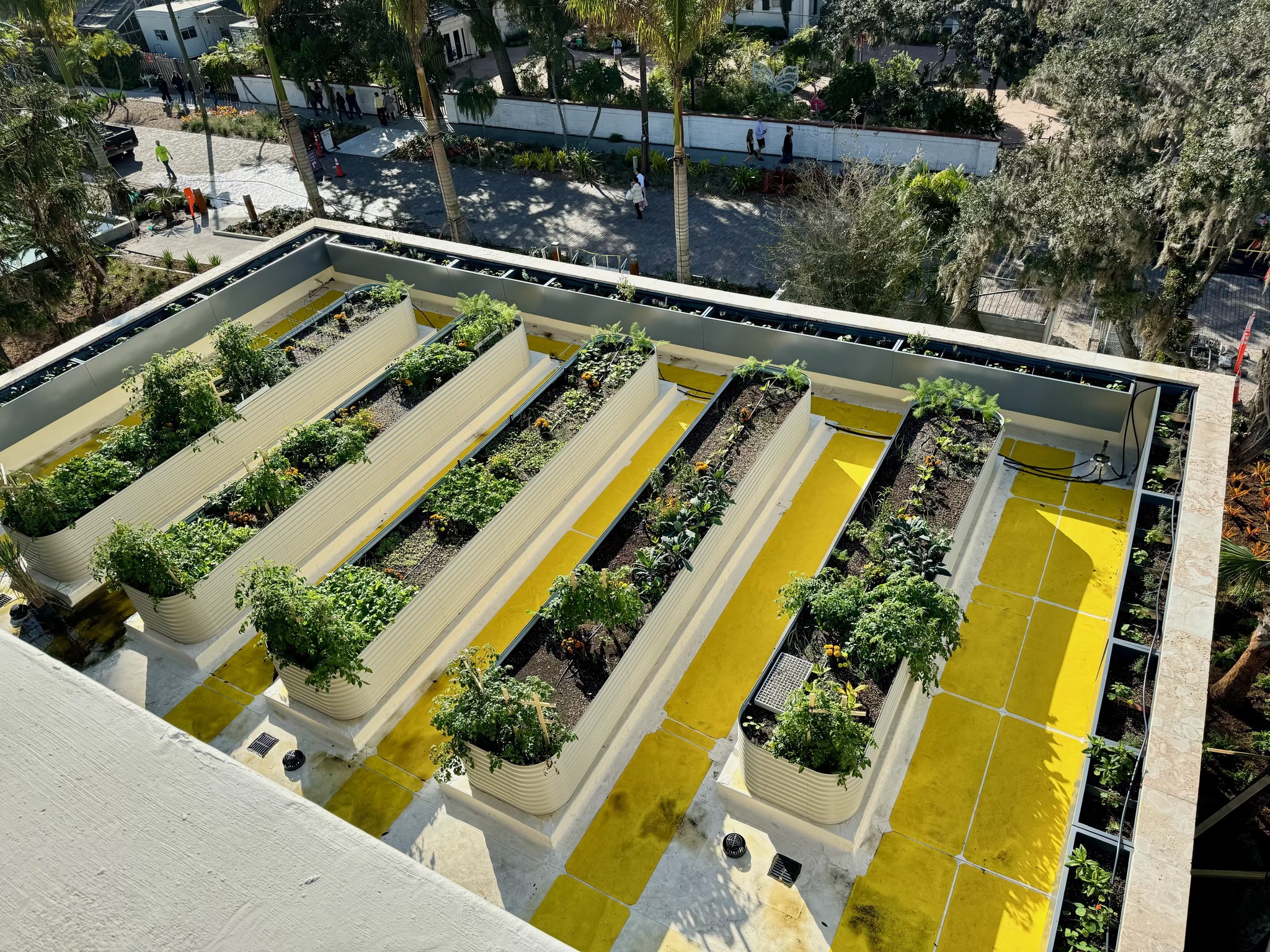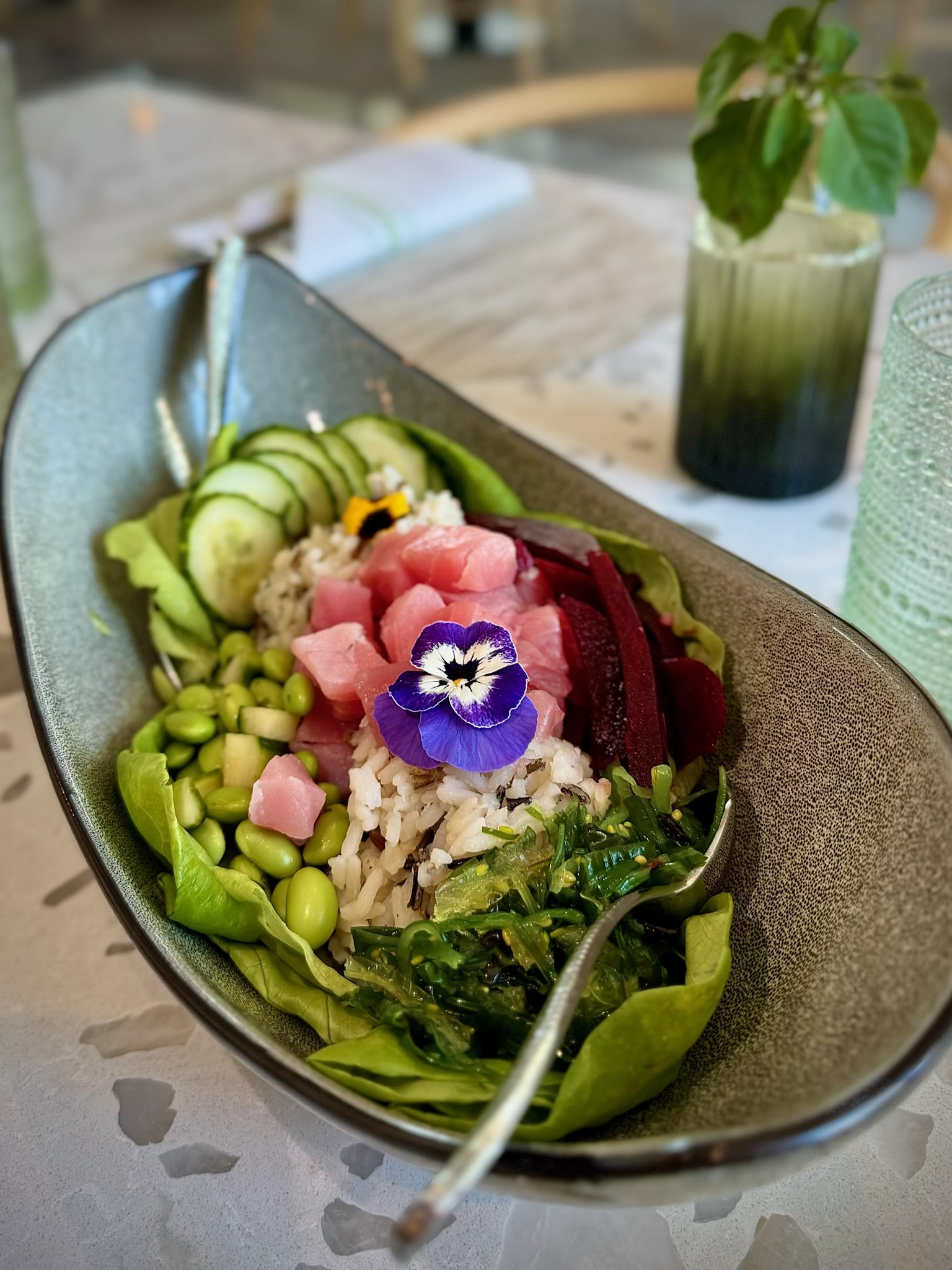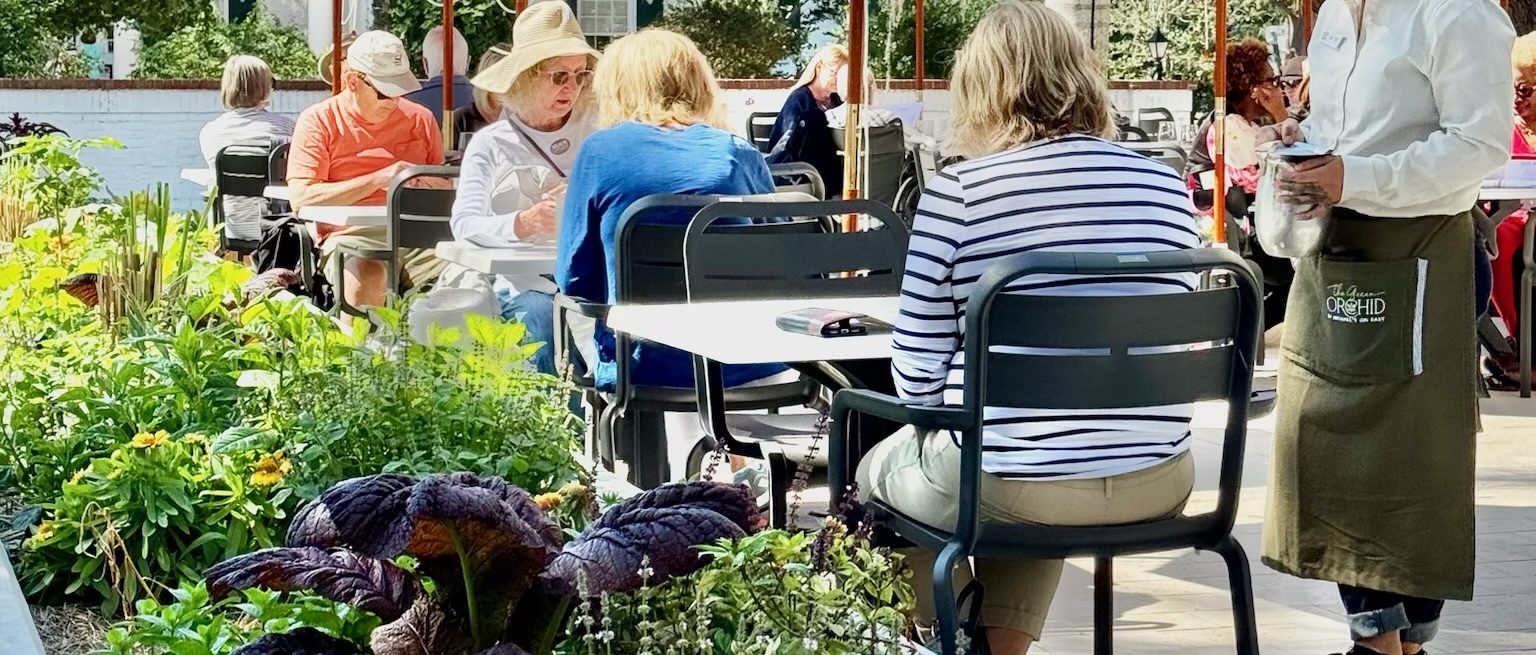Net-Positive Dining at The Green Orchid
4 Min Read By MRM Staff
The Green Orchid, a garden-to-table, fully solar-powered restaurant recently opened in Sarasota's Marie Selby Botanical Gardens, expects soon to be the world’s first net-positive energy restaurant, generating more energy than it consumes.
Designed by Overland Partners and operated by Michaels On East, the eatery's seasonally inspired menu features produce from The Drs. Andrew and Judith Economos Rooftop Edible Garden at Selby Gardens, which was planned, planted, and maintained by Operation EcoVets, a non-profit organization that provides personal, educational, and professional growth opportunities for military veterans.
“We are focused on making the garden-to-table offerings at The Green Orchid both fresh and distinctive,” said Michael Klauber, co-proprietor of Michael’s On East. “Doing garden-to-table well – especially while using electric and induction cooking techniques – requires a high level of skill and inventiveness. We believe that visitors will be impressed.”
The restaurant is part of Phase One of a three-phase master plan for Selby Gardens’ downtown Sarasota campus and features 188,030 square feet of new facilities and amenities, including three buildings that create the first net-positive energy botanical complex in the world.
The Green Orchid is located at 1534 Mound Street in The Morganroth Family Living Energy Access Facility (LEAF), which also houses parking, the roof garden, and a gift shop capped with a 50,000-square-foot solar array. As part of the LEAF, a filtration system treats stormwater runoff and returns clean water to Sarasota Bay. Going above and beyond LEED certification, Selby Gardens is seeking “Petal” certification through The Living Future Institute and will strive for net-positive energy, be free of toxic chemicals, and lower the energy footprint many times below that of a generic commercial structure.
To learn more about the project, Modern Restaurant Management (MRM) staff reached out to The Green Orchid team.
What were any design challenges?
Michael Klauber worked with world-renowned kitchen designer Jimi Yui, of Yui Design. who designed the Green Orchid Restaurant kitchen. “Many hours were devoted to researching specialty equipment that would work best in our solar-powered environment. We chose state-of-the-art equipment, including our electric flat tops, ovens, and finishing broilers, as well as the induction ranges.”
As for the design of the restaurant’s dining areas, these are open with plenty of natural light and beautiful views of the botanical gardens. All of the light fixtures are LED and we used wood & stone materials for chairs and table tops. As our goal was to incorporate as much organic material into the public areas as possible. One of the special features we used to accentuate the dining spaces are the Pecky Cypress wood panels reclaimed from the Florida Everglades.

Can the effort be reproduced in other locations?
Solar panels are undoubtedly the most effective in our location of Sarasota, Florida, which has high solar insolation. If you make the effort in a complete redesign to convert your restaurant or any building to maximum energy efficiency, it’s always a win for the environment! Examples are energy-efficient windows, a high-efficiency HVAC system, insulation, using building materials that absorb and store heat energy such as concrete, brick and stone. Even landscaping is energy effective as seen at our establishment with the trees and shrubs placed strategically to provide shade and comfort to our guests.

What role does the induction cooking process play in the overall energy usage?
Induction cooking is more energy-efficient compared to traditional cooking methods. Induction cooktops are highly efficient when it comes to the percentage of energy directly transferred to the cooking vessel – efficiency rates upwards of 80-90 percent! Also, food cooks more quickly on the induction cooktop, reducing time and energy for preparing dishes. There is also minimal heat loss leading to lower energy consumption and contributing to a cooler kitchen. This reduces the energy used for ventilation and results in lower energy bills.
What kind of training does induction cooking involve as compared to more traditional gas, etc.?
Induction cooking uses electromagnetic fields to heat pots and pans directly, leading to extremely fast heating times and precise temperature control, which is essential for the delicate cooking process. Since induction doesn't provide visual cues like a gas flame, our team of cooks rely more on timing and the specific settings of their induction cooktops. It is very easy to accidentally overcook something if you are not mindful, so the team always starts slow and low until they acclimate to the varying temperature degrees.
What lessons can other restaurateurs take away about being more sustainable and energy friendly? Are there any best practices or tips?
In the restaurant industry, these practices are increasingly important for reducing environmental impact, cutting costs and meeting expectations of our eco-conscious customers. Any restaurant can implement energy-saving practices such as LED lighting, Smart thermostats and water-saving fixtures.
Another lesson would be to look over both your menu and wine list to see where you can incorporate these practices. For our menu, we offer garden-to-table dishes focusing on local, regional & sustainably sourced produce, seafood, meats, and poultry options. We also have the added benefit of the rooftop organic garden on top of our restaurant, giving us the advantage of sourcing produce right above us!

Our wine list is solely international selections that only use organic, biodynamic or sustainable practices and many of the wineries are powered by solar renewable energy.
What has the response been from guests?
From our opening just two months ago to the present day, we have received numerous positive feedback and reviews about service, decor, the specialty cocktails, the fresh ingredients and presentation of every dish & the vegetarian/vegan/gluten free options that we offer. Even guest photographs that have been shared on our review site have superseded what we have in our files!
Our team shares their excitement to our customers too by sharing details on our rooftop organic garden and how we are set to become the world’s first solar-powered, net positive energy restaurant which carries over in guest reviews.
We actively encourage each of our guests, residing locally or visiting from out of town, to share their experience with us. Our team embraces feedback of all kinds, both positive and negative, as this is our guide to help us learn, refine and improve in our all-around hospitality.

